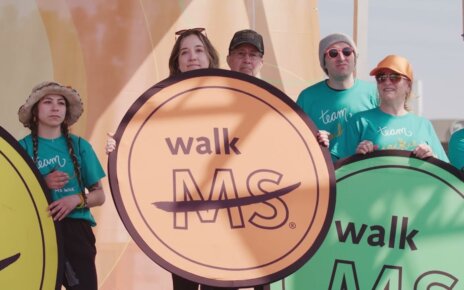Graduate students taking Advanced Race and Racism (EDC-520) held a tabling event open to the University community on “How to be an Antiracist” Monday, Nov. 28.
The program was advertised as an opportunity to provide students and faculty with information on the impact of racism, in addition to the steps people can take to become antiracist advocates.
According to Natalie Ostermann, a graduate counseling student and one of the event’s organizers, Monmouth’s school counseling program is founded on social justice advocacy, empowering students to approach education through a lens of equity.
Tina Paone, Ph.D., Professor for the Department of Education Counseling and Leadership, provided some more context behind the initiation of the event.
“Students enrolled in EDC-520 Advanced Race & Racism course are assigned an Antiracism Advocacy Project every semester. Each semester, the group leaders from the previous semester inform the next semester (in this case Spring 2022 informed Fall 2022) of what they did and how it went,” said Paone. “The idea is that each semester the project builds from the previous. All students in the course, no matter the section, participate as a large group together.”
Although required for their course, the students were enthused to spread awareness regarding the importance of antiracism.
“An event on campus like this is so important for students and faculty to have the opportunity to engage with as the topic may not always come up in regular discussion. Racism is not something that ended after the Civil Rights movement like most of us would assume. It is an issue that people of color are impacted by every day and in all facets of life,” started Ostermann.
Andrew Nash, one of the graduate students who participated in the project, concurred with Ostermann, “An important factor to keep in mind about this topic is that no one becomes antiracist overnight. This takes work and time, all starting with the willingness to open up your own personal blind spots and implicit biases. Then you have to find the types of resources that work for you— Ted Talks, articles, personal journals, presentations, and anything else that helps you best process what you are learning.”
Paone elaborated, “It’s important to understand how the impacts of systemic racism affect all.”
“Acknowledge that we may not fully understand the effects of racism firsthand, but it is important to make the effort to speak up and advocate for others,” added Nash.
According to the graduate students working the table, the students that visited the table were largely receptive.
Skylar Lyons, graduate educational counseling student, said, “For the most part, students showed interest and partook in our interactive activities. I think some of the biggest takeaways from the tabling event was having them think deeper about what actions they can take to become advocates and use their voice to make a difference.”
“All of the students running the event were wonderful and put together a very nice table. It is one thing to be inclusive of all races, to communicate and work alongside people of different cultures. I feel as though this is different from embracing and celebrating other cultures and races. Now I am not saying that I am going to start to practice other cultures, but to me celebrating doesn’t necessarily have to be something big. It can be curiosity and acceptance. It can be kind words that embrace another culture or respectful questions,” said an English student who visited the table.
A visitIng social work student added, “As a social work major, I am an advocate for antiracism, and I stand with the rest of the social workers to help speak out and stop racism. Something that stood out to me on their website was the statement ‘Racism is not just a Black issue. Racism hurts everyone.’ I have not heard this said before, but I strongly believe in it because as an antiracist it hurts me to see such a large community be treated this way. Overall, this event was a very positive and I think it is going to make a large impact.”
Ostermann concluded, “We are grateful to all the students and staff that visited our table and hope they left feeling a little more empowered in their ability to be antiracist advocates.”




